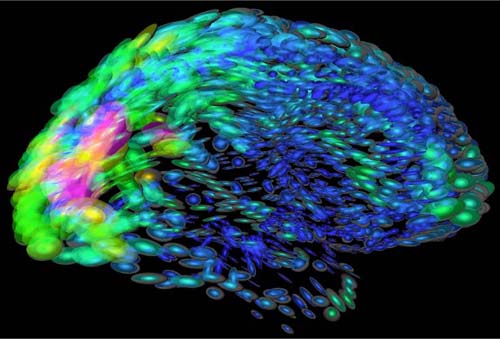![Researchers have developed a novel assay to detect Parkinson's disease, using prion disease diagnostics as a blueprint. [NIH]](https://genengnews.com/wp-content/uploads/2018/08/MappingBrain2106804992-1.jpg)
Researchers have developed a novel assay to detect Parkinson’s disease, using prion disease diagnostics as a blueprint. [NIH]
Having the ability to detect and diagnose neurodegenerative diseases such as Parkinson’s can make a huge difference in disease management and patient quality of life. Now, a new study led by investigators at the University of Edinburgh has allowed scientists to move a step closer toward a test that can detect Parkinson’s disease (PD) in the early stages of illness.
Utilizing spinal fluid from afflicted patients, researchers have developed a methodology for detecting the critical protein in PD pathology, alpha-synuclein, which forms sticky clumps called Lewy bodies inside the brain cells of people with PD and some types of dementia. The investigators agree that that the test needs to be validated with a larger sample group to verify their initial findings, but they are extremely optimistic that the new assay could one day help to improve diagnosis of the disease.
Previous efforts to develop a test for alpha-synuclein have produced inconsistent results because the protein is also found in healthy brains. It is only when the protein clumps together that it causes problems. In the new study, the University of Edinburgh researchers made use of an extremely sensitive technology that measures the stickiness of proteins. The approach—called real-time quaking-induced conversion (RT-QuIC)—can detect tiny differences in the properties of proteins in the brain that can mean the difference between disease or not.
“We have already used this technique to develop an accurate test for Creutzfeldt-Jacob disease (CJD), another neurodegenerative condition,” explained senior study author Alison Green, Ph.D., Reader at the National CJD Research & Surveillance Unit, a part of the University of Edinburgh. “We hope that with further refinement, our approach will help to improve diagnosis for Parkinson's patients.”
In initial tests, the technique was able to identify 19 out of 20 samples accurately from patients with PD, as well as three samples from people considered to be at risk of the condition. There were no false positives among any of the 15 control samples from healthy people. Moreover, the technique was also able to identify patients with a type of dementia caused by Lewy bodies, but not other kinds of dementia such as Alzheimer's disease.
“We have developed a novel real-time quaking-induced conversion RT-QuIC-based assay to detect alpha-synuclein aggregation in the brain and cerebrospinal fluid from dementia with Lewy bodies and Parkinson's disease patients,” the authors wrote. “This assay can detect alpha-synuclein aggregation in Dementia with Lewy bodies and Parkinson's disease cerebrospinal fluid with sensitivities of 92% and 95%, respectively, and with an overall specificity of 100% when compared to Alzheimer and control cerebrospinal fluid.”
The findings from this study were published recently in the Annals of Clinical and Translational Neurology in an article entitled “Alpha-synuclein RT-QuIC in the CSF of Patients with Alpha-synucleinopathies.”
“We are also interested in whether [the test] could be used to identify people with Parkinson's and Lewy body dementia in the early stages of their illness,” Dr. Green noted. “These people could then be given the opportunity to take part in trials of new medicines that may slow, or stop, the progression of disease.”
PD is a progressive brain condition caused by the loss of nerve cells. It is not known what causes the condition and there is currently no accurate test for it. Patients often have to wait years for a diagnosis, which is based on physical symptoms, their medical history, and the results of simple mental and physical exercises.



